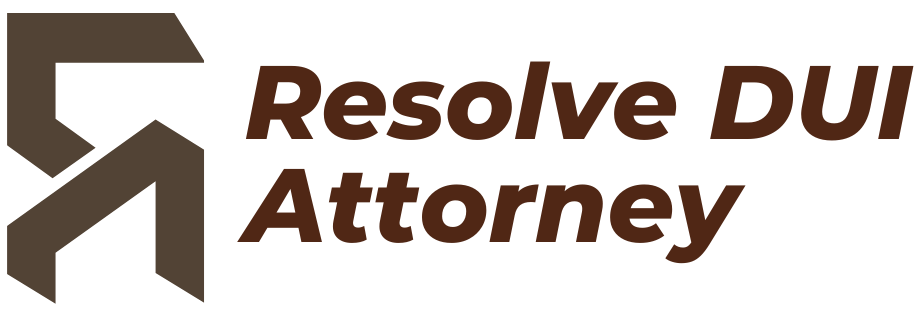In the complex world of real estate transactions, Melbourne conveyancers play a crucial role in ensuring smooth and legally sound property deals. Their expertise and knowledge of property laws help home buyers and sellers navigate the intricacies of the conveyancing process.
Understanding the Role of Conveyancers in Real Estate Transactions
Conveyancers are licensed professionals who specialize in the legal transfer of property ownership. Their primary responsibility is to protect the interests of their clients and ensure that all necessary legal requirements are met during the buying or selling process.
By enlisting the professional services of Melbourne conveyancers, both buyers and sellers can navigate the complex process of property transactions with confidence. From understanding the role of conveyancers to choosing the right professional and budgeting for costs, this article has provided valuable insights into the world of conveyancing in Melbourne.
Their involvement begins as soon as an offer is accepted and continues until the property settlement is finalized.
The Importance of Conveyancing in Property Deals
Conveyancing is a crucial aspect of property deals because it ensures that the buyer receives clear and unencumbered ownership of the property while safeguarding the seller’s responsibilities and financial interests.
At its core, conveyancing involves performing comprehensive property searches, preparing legal documents, coordinating with relevant parties, and ensuring the smooth transfer of funds to complete the transaction.

Key Responsibilities of a Conveyancer
A conveyancer’s role encompasses a range of responsibilities, including:
- Reviewing property contracts and advising clients on any potential legal implications or risks.
- Performing title searches to verify property ownership and identify any encumbrances or restrictions.
- Preparing and lodging legal documents, such as the Contract of Sale, Transfer of Land, and Statement of Adjustments.
- Calculating and collecting fees and taxes, such as stamp duty and land transfer fees.
- Coordinating with the buyer’s and seller’s representatives to ensure a smooth settlement process.
- Attending settlement meetings and overseeing the transfer of funds and legal obligations.
One of the crucial responsibilities of a conveyancer is to review property contracts thoroughly. This involves carefully examining the terms and conditions outlined in the contract to identify any potential legal implications or risks for their clients. By doing so, conveyancers can provide valuable advice and guidance to their clients, helping them make informed decisions.
In addition to reviewing contracts, conveyancers also play a vital role in performing title searches. This process involves conducting extensive research to verify the property’s ownership and uncover any encumbrances or restrictions that may affect the transaction. By identifying these issues early on, conveyancers can help their clients navigate potential obstacles and ensure a smooth transfer of ownership.
Another important responsibility of conveyancers is preparing and lodging legal documents. This includes drafting and finalizing documents such as the Contract of Sale, Transfer of Land, and Statement of Adjustments. These documents are crucial for legally transferring property ownership and ensuring that all parties involved are aware of their rights and obligations.
Furthermore, conveyancers are responsible for calculating and collecting various fees and taxes associated with the property transaction. This includes calculating stamp duty, land transfer fees, and any other applicable taxes. By accurately calculating these costs and ensuring they are paid on time, conveyancers help their clients avoid any potential legal issues or delays in the settlement process.
Lastly, conveyancers play a pivotal role in coordinating with the buyer’s and seller’s representatives to ensure a smooth settlement process. This involves liaising with real estate agents, mortgage brokers, and other relevant parties to ensure that all necessary documentation and funds are in place for the settlement. By effectively managing these communications and ensuring everyone is on the same page, conveyancers contribute to a seamless and successful property transaction.
Read more at: Sydney Conveyancers
The Conveyancing Process Explained
Initial Stages of Conveyancing
The conveyancing process is a crucial step in the property buying or selling journey. It typically commences with the signing of the Contract of Sale, a legal document that outlines the terms and conditions of the property transaction. The conveyancer, acting on behalf of either the buyer or seller, meticulously reviews the contract to identify any potential issues or amendments that may need to be addressed. This thorough examination helps ensure that both parties are protected and aware of their rights and obligations.
Following the contract review, the conveyancer embarks on conducting property searches. These searches are essential to uncover any existing debts, caveats, or other legal encumbrances that could impact the property’s title. By delving into these details, the conveyancer helps safeguard the client from unforeseen complications that may arise post-purchase.
Moreover, during this initial stage, the conveyancer collaborates with the client’s mortgage provider to secure the necessary financing for the property acquisition. This coordination is vital in ensuring that the financial aspect of the transaction aligns with the client’s expectations and requirements.
Finalizing the Conveyancing Process
As the conveyancing process progresses, and all essential checks are satisfactorily completed, the conveyancer proceeds to prepare critical documents such as the Transfer of Land and Statement of Adjustments. The Transfer of Land document formally transfers the property’s ownership from the seller to the buyer, while the Statement of Adjustments outlines the final financial settlement, including adjustments for rates, taxes, and other relevant costs.
In addition to document preparation, the conveyancer arranges for essential property inspections, such as building and pest inspections. These inspections are conducted to ensure that the property is in the expected condition and free from any significant structural or pest-related issues. By facilitating these inspections, the conveyancer aids in providing the client with a comprehensive understanding of the property’s physical condition. Learn more about pest on https://extension.psu.edu/pests-and-pesticides-in-agriculture
On the much-anticipated settlement day, the conveyancer plays a pivotal role in overseeing the transfer of ownership. They attend the settlement meeting alongside the buyer’s and seller’s representatives to ensure that all legal requirements are met, and the transfer of ownership is executed accurately. This critical step marks the culmination of the conveyancing process, where the property officially changes hands, and all financial obligations are settled in accordance with the agreed-upon terms.
Choosing the Right Melbourne Conveyancer
Factors to Consider When Hiring a Conveyancer
When selecting a conveyancer, there are several crucial factors to consider:
- Experience and qualifications: Ensure the conveyancer has relevant experience and is registered with the appropriate regulatory bodies.
- Communication: A conveyancer should have excellent communication skills to keep clients informed throughout the process.
- Transparent pricing: It’s important to request a detailed breakdown of all fees and charges upfront.
- Reputation: Research online reviews and seek recommendations from friends, family, or professionals in the real estate industry.
Moreover, it is advisable to inquire about the conveyancer’s workload to ensure they can dedicate sufficient time and attention to your specific needs. A conveyancer with a manageable caseload is more likely to provide personalized service and timely updates on your property transaction.

The Benefits of Hiring Local Melbourne Conveyancers
Choosing a conveyancer familiar with the local laws, regulations, and property market in Melbourne can provide several advantages:
- Local knowledge: They will have a deep understanding of Melbourne’s property market and any unique considerations that may arise during the conveyancing process.
- Efficiency: Local conveyancers are well-versed in local council requirements and can expedite the process by swiftly completing the necessary documentation.
- Accessibility: Being physically located in Melbourne allows for easier face-to-face meetings and direct communication with relevant local parties.
Furthermore, local conveyancers often have established relationships with key players in the Melbourne real estate industry, such as real estate agents, property developers, and legal professionals. This network can prove invaluable in navigating any complexities that may arise during the property transaction process, ensuring a smoother and more efficient experience for the client.
The Legal Aspects of Conveyancing
Understanding Property Laws in Melbourne
Melbourne has specific property laws that govern the buying and selling of real estate. These laws outline the rights and obligations of both buyers and sellers, as well as the conveyancer’s role in ensuring compliance throughout the process.
Property laws in Melbourne are designed to protect both buyers and sellers in real estate transactions. They cover a wide range of issues, including property titles, zoning regulations, and disclosure requirements. Understanding these laws is crucial to avoid disputes and legal complications during the conveyancing process.
Buyers need to be aware of their rights regarding property inspections, contract terms, and cooling-off periods. On the other hand, sellers must adhere to regulations regarding property disclosures, contract terms, and settlement procedures. A knowledgeable conveyancer can guide both parties through these legal requirements.
How Conveyancers Navigate Legal Complexities
Conveyancers play a vital role in navigating the legal complexities involved in property transactions. They ensure compliance with regulations, complete the necessary legal documentation, and handle any legal issues that may arise. To learn more about navigating click here.
Conveyancers undergo extensive training to understand the intricacies of property laws and regulations. They stay updated on any changes in legislation that may impact real estate transactions. This expertise allows them to provide valuable guidance to their clients and protect their interests throughout the conveyancing process.
Additionally, conveyancers act as intermediaries between buyers, sellers, real estate agents, and legal authorities. They facilitate communication, clarify legal terms, and ensure that all parties fulfill their obligations. By working with a skilled conveyancer, individuals can navigate the legal complexities of property transactions with confidence and peace of mind.
Cost of Conveyancing Services in Melbourne
Breakdown of Conveyancing Fees
The cost of conveyancing services in Melbourne can vary based on factors such as the property’s value, complexity of the transaction, and the conveyancer’s fees. Typically, conveyancers charge a combination of fixed fees and disbursements.
Fixed fees cover the conveyancer’s professional services, which encompass a range of tasks including conducting title searches, preparing legal documents, and facilitating the settlement process. These fees are agreed upon upfront and provide clients with transparency and predictability in terms of costs.
Disbursements, on the other hand, include expenses such as property searches, registration fees charged by government authorities, and any additional costs incurred during the conveyancing process. These costs can vary depending on the specific requirements of the transaction, such as the need for specialized searches or expedited processing.
How to Budget for Conveyancing Costs
It’s essential to budget for conveyancing costs when buying or selling a property in Melbourne. By obtaining quotes from multiple conveyancers, comparing their services, and understanding their fee structures, you can make an informed decision and budget accordingly.
When budgeting for conveyancing costs, it’s important to consider not only the initial fees but also any potential additional expenses that may arise during the course of the transaction. Factors such as the need for additional searches, unexpected delays, or changes in the scope of work can impact the final cost, so having a contingency fund is advisable.
Remember that while cost is an important consideration, it’s equally vital to choose a conveyancer with the necessary expertise and a track record of providing high-quality service. A skilled conveyancer can offer valuable guidance, ensure compliance with legal requirements, and help streamline the conveyancing process, ultimately saving you time and potential headaches.
Tags: conveyancers, conveyancing melbourne, conveyancing newcastle, conveyancing sydney, melbourne conveyancers, sydney conveyancers
